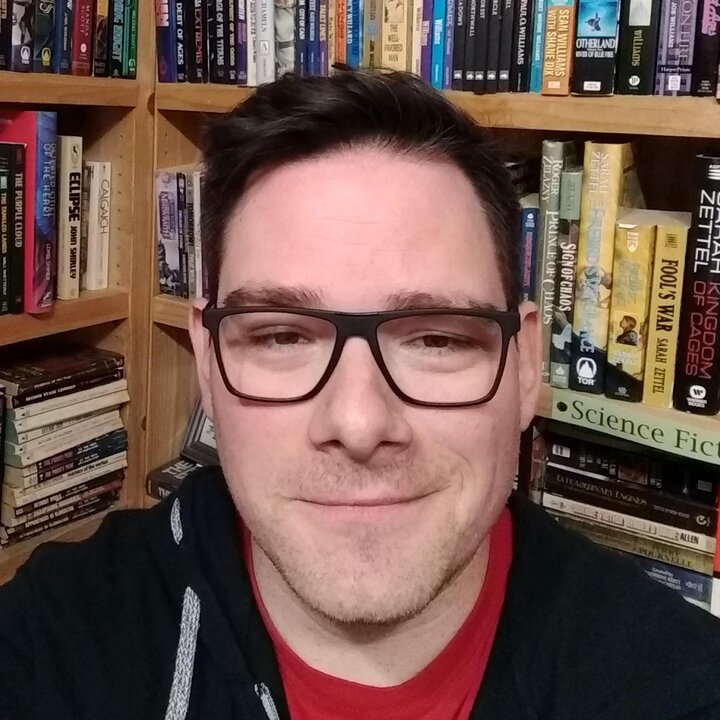
Patrick Habecker
Rsch Asst Professor Minority Health Disparities Initiative University of Nebraska-Lincoln
Contact
- Address
-
711 OLDH
Lincoln, NE 68588-0324 - Phone
-
402-472-3631 On-campus 2-3631
-
phabecker2@unl.edu
- Website
-
Google Scholar
Current Research
My research focuses on substance use, hidden and hard-to-reach populations, and survey methodology. Currently I am focused on behaviors of people who inject drugs in rural Puerto Rico, testing and applying the network scale-up method, and exploring how privacy in interviews affects outcomes. Upcoming papers examine differences in needle sharing networks, interviewer effects on adolescent self-reporting, and the distribution of social network sizes among Nebraskans. Recent publications have appeared in the Journal of Drug Issues, AIDS and Behavior, and PLoS ONE.
Current Teaching
I have recently taught Drugs & Society (SOCI 309) and Research Methods (SOCI 205) for the sociology department.
Describe your research and how it contributes to alleviating or understanding health disparities?
I am interested in substance use, stigma towards people who use substances, and how personal experience with substances either directly or through friends influences our opinions on drug policy. Substance use intersects with health disparities in several ways such a denial of medical treatment, disdain by health professionals towards people who use substances, and laws and policies that make it far harder for people who use substances to maintain their health. The continuing rise of overdose deaths across the United States shows not just the increased number of deaths, but the disproportionate access to resources which can prevent overdose deaths across the country. By trying to understand patterns of substance use in Nebraska and what influences policy towards people who use substances I want to help build a better future in Nebraska.
What inspired you to study health disparities and/or your field of research?
I came to graduate school with an interest in sociology and criminology. My early work focused on outcomes of children when one of their parents are incarcerated, which brought me into some aspects of health disparities. In my third year I started to assist on a project focused on rural people who inject drugs in Puerto Rico. That project led to several follow-ups that focused on substance use and indirect health outcomes like HIV and hepatitis C. After I finished my PhD I had the chance to work in the Rural Drug Research Center at UNL and jumped for it. I have been working in the realm of substance use and health ever since.
What advice would you give to incoming students (graduate or undergraduate) who are interested in studying health disparities? Find mentors or labs working in areas you are interested in and see what opportunities are available. Look outside your own discipline at UNL as well as within your own discipline in other schools or settings. If you can, find internships and use your summers to get into the work you want to study or work professionally in after you finish.
What advice would you give to incoming faculty who are interested in health disparity research?
It is almost cliché to say join MHDI, but really, join MHDI! We are a great way to meet a lot of researchers across a range of disciplines and to quickly network and get involved with current research and proposals. There is also a lot of overlap between MHDI and the Grand Challenges at UNL, find a team and join up.
Education
Ph.D., University of Nebraska-Lincoln
Areas of Specialization:
- Survey Research and Methodology
- Substance Use
- Hidden & Hard-to-Reach Populations
- Social Networks
Selected Publications
Habecker, Patrick, Melissa Welch-Lazoritz, and Kirk Dombrowski. 2018 “Rural and Urban Differences in Nebraskans’ Access to Marijuana, Methamphetamine, Heroin, and Prescription Pills.” Journal of Drug Issues 48(4):608-624. https://doi.org/10.1177/0022042618786717
Less, Hsuan-Wei, Miranda Melson, Jerreed Ivanich, Patrick Habecker, G. Robin Gauthier, Lisa Wexler, Bilal Khan, and Kirk Dombrowski. “Mapping the Structure of Perceptions in Helping Networks of Alaska Natives.” PLoS ONE 13(11):e0204343 https://doi.org/10.1371/journal.pone.0204343
Habecker, Patrick, Roberto Abadie, Melissa Welch-Lazoritz, Jaun Carlos Reyes, Bilal Khan, Kirk Dombrowski. 2018. “Injection Partners, HCV, and HIV Status among Rural Persons Who Inject Drugs in Puerto Rico.” Substance Use & Misuse 53(7)1128-1138. https://doi.org/10.1080/10826084.2017.1400562
Kort-Butler, Lisa, and Patrick Habecker. 2018. “Framing and Cultivating the Story of Crime: The Effects of Media Use, Victimization, and Social Networks on Attitudes about Crime.” Criminal Justice Review 43(2)127-146. https://doi.org/10.1177/0734016817710696 (First published online May 2017).
Duncan, Ian, Patrick Habecker, Bilal Khan, Kirk Dombrowski. 2018. “Injection-related Hepatitis C Serosorting Behaviors among People Who Inject Drugs: An Urban/Rural Comparison.” Journal of Ethnicity in Substance Abuse https://doi.org/10.1080/15332640.2018.1425950
Recent Grant Activity
R21 DA047304-01 Co-Primary Investigator (MPI), Total Costs: $412,763. “Assessing the effects of Hurricane Maria on Opioid Agonist Treatment Access among PWID in Rural Puerto Rico.” Submitted November 2017. Funded in 2018